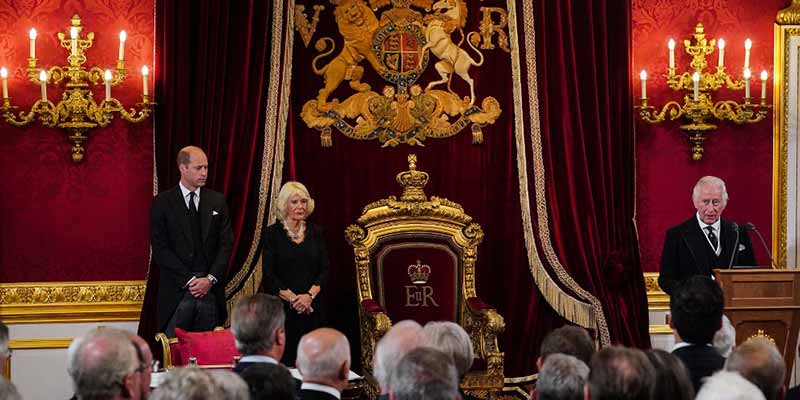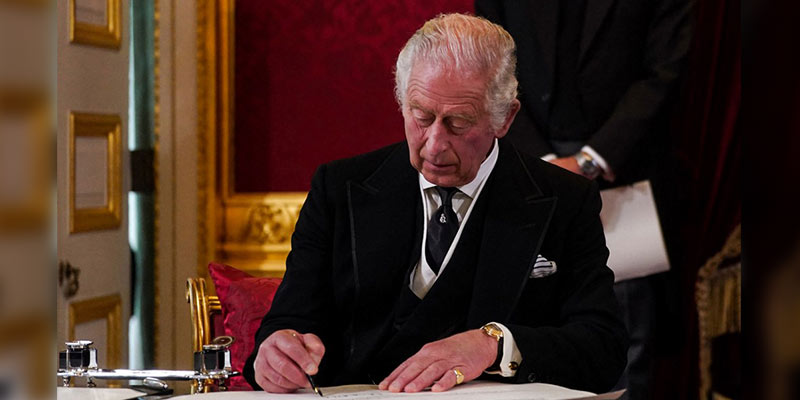- World
- Sep 11
Explainer / The Accession Council & Privy Council in the UK
• In Britain, the death of a Sovereign and their successor is officially proclaimed by the Accession Council, formed of a large group of senior politicians and officials.
• Traditionally the council is summoned within 24 hours of a monarch’s death for a ceremonial meeting at St. James’s Palace.
• The Accession Council is formed of members of the Privy Council, mostly past and present politicians, including all living prime ministers, as well as Church of England leaders and senior royals, and other ceremonial leaders, such as the Lord Mayor of London.
• The Privy Council advises the monarch and is one of the oldest parts of government. It can be traced back to the time of the Norman kings when the monarch met with a group of advisers in private, predating the modern functions of a government cabinet.
• Historically the entire Privy Council is called to the Accession Council to oversee the new monarch’s proclamation.
The Accession Council, which is presided over by the Lord President of the Council, is divided into two parts:
Part 1
A meeting is held by the Privy Council without the sovereign present. The purpose of the meeting is to formally announce the death of the monarch and proclaim the succession of the new sovereign and to make certain consequential Orders of Council mainly relating to the Proclamation.
Part 2
The Sovereign holds his or her first Privy Council with only Privy Councillors present. During the meeting the Sovereign reads a personal declaration and takes the oath to preserve the Church of Scotland. An oath to maintain the established Protestant succession, which must be made before the Houses of Parliament, is normally made several months later at the State Opening of Parliament.
In London, the public proclamation of the new Sovereign is first read by Garter King of Arms at St. James’s Palace, in the presence of the Earl Marshal and two of the Sovereign’s Serjeants-at-Arm. It is also read with similar ceremony in Edinburgh by Lord Lyon King of Arms, in Belfast and Cardiff and in the City of London.
The Privy Council
• Members of the Privy Council are senior government ministers and judges. Although members of the Privy Council are appointed for life, only ministers of the current government participate in its day-to-day business.
• The Privy Council has existed in some form since the 13th century as the group of counsellors advising the monarch. The modern cabinet has evolved from this group.
• The Privy Council deals with some of the more routine, administrative elements of Government, as well as overseeing the affairs of ‘Chartered bodies’ — the 1000 or so institutions, charities and companies which hold Royal Charters.
• Privy Council meetings take place on average once a month, attended by the monarch, and are held standing to ensure brevity and efficiency.
• At each meeting the Council requests the monarch’s formal approval to a number of Orders which will already have been discussed and approved by ministers. This might include matters such as the design and specification of new coins, the closure of graveyards or the appointment of bank holidays.
Manorama Yearbook app is now available on Google Play Store and iOS App Store


